
General George Washington informs Congress of espionage on October 05, 1775
Washington informs Congress of espionage: On this day in 1775, General George Washington writes to the president of the Continental Congress, John Hancock, to inform him that a letter from Dr. Benjamin Church, surgeon general of the Continental Army, to Lieutenant General Sir Thomas Gage, British commander in chief for North America, had been intercepted. Washington wrote, “I have now a painful tho’ a Necessary Duty to perform respecting Doctor Church, Director General of the Hospital.”
Washington described how a coded letter to a British officer, Major Crane, came into Washington’s possession by a convoluted route from “a Woman who was kept by Doctor Church”. Washington “immediately secured the Woman, but for a long time she was proof against every threat and perswasion[sic] to discover the Author, however at length she was brought to a confession and named Doctor Church. I then immediately secured him and all his papers.”
The woman Washington interrogated was the mistress of Dr. Benjamin Church, a renowned Boston physician, who was active in the Massachusetts Committee of Safety and served as a member of the Provincial Congress. In July 1775, Washington had named Church the first surgeon general of the Continental Army, only to find out three months later that he had been spying for the British since 1772. Church faced an army court martial on October 4, 1775.
Despite Church’s plea of innocence, and the inconsequential nature of the information he provided to Crane, the contents of the letter included Church’s statement of allegiance to the British crown. He was charged with treason, convicted and sentenced to life in prison. After becoming ill while incarcerated, Dr. Church was exiled to the West Indies. The ship in which he traveled is believed to have been lost at sea.
On November 7, 1775, shortly after the conviction of Dr. Church, the Continental Congress added a mandate for the death penalty as punishment for acts of espionage to the “articles of war”.
History Channel / Wikipedia / Encyclopedia Britannica / Library of Congress - The George Washington Papers

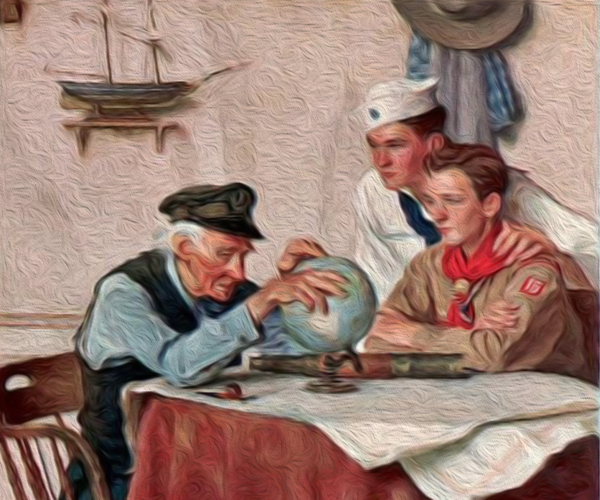
Understanding Military Terminology - Munitions effectiveness assessment
(DOD) Conducted concurrently and interactively with battle damage assessment, the assessment of the military force applied in terms of the weapon system and munitions effectiveness to determine and recommend any required changes to the methodology, tactics, weapon system, munitions, fusing, and/or weapon delivery parameters to increase force effectiveness. Munitions effectiveness assessment is primarily the responsibility of operations with required inputs and coordination from the intelligence community. Also called MEA. See also assessment; battle damage assessment. Joint Publications JP 2-01 (Joint and National Intelligence Support to Military Operations

The Old Salt’s Corner
“London 1802”
Milton! thou should'st be living at this hour:
England hath need of thee: she is a fen
Of stagnant waters: altar, sword, and pen,
Fireside, the heroic wealth of hall and bower,
If you can wait and not be tired by waiting,
Have forfeited their ancient English dower
Of inward happiness.
We are selfish men;
Oh! raise us up, return to us again;
And give us manners, virtue, freedom, power.
Thy soul was like a Star, and dwelt apart:
Thou hadst a voice whose sound was like the sea:
Pure as the naked heavens, majestic, free,
So didst thou travel on life's common way,
In cheerful godliness; and yet thy heart
The lowliest duties on herself did lay.
~ William Wordsworth

“I’m Just Sayin”
“Under some conditions, it is rational for competitors to make their products as nearly identical as possible.”
~ Hotelling's law in economics

“Thought for the Day”
“Being powerful is like being a lady. If you have to tell people you are, you aren’t.”
~ Margaret Thatcher

“What I Have Learned”
“Remember, for everything you have lost, you have gained something else. Without the dark, you would never see the stars.”
~ Author Unknown

Bizarre News (we couldn’t make up stuff this good – real news story)

Long haul flights can play havoc with our intestines - and certain foods make this worse.
Cruising in a pressurised cabin at 30,000 feet is not a particularly normal environment for us humans to be in, and there are ways in which this shows.
There is a science to this grotty feeling we get after a long flight. High altitude causes the gas in our bodies to expand, which in turn leads to bloating - and even an unpleasant bout of flatulence.
Foods to avoid: 1) Baked beans, 2) Chickpeas, 3) Broccoli, 4) Cabbage, 5) Lentils, 6) Carbonated drinks, 7) Chewing gum.
What to be eating and drinking: 1) Water, 2) Opt for the vegetarian option, 3) Flight attendants reveal 9 “behind the scenes” secrets.
Mirror (07/19/2016) 

Mr. Answer Man Please Tell Us: Why Do We Sleep?
WHY SLEEP EVOLVED
The earliest differentiation into day versus night behavior in animals was probably driven by differences in temperature and the light available for vision. Day and night are further differentiated by the aggregate “behavior” of the ecosystem (other animals also have day/night cycles). As a result, the optimal day and night survival strategies are different, and animals would have adapted to synchronize their survival strategy to the 24-hour cycle.
Evidence is accumulating that complex nervous systems, and especially the brain, perform and benefit from internal maintenance activities. Some of these maintenance activities, such as "synaptic network stabilization," occur at the cellular level. Others, such as memory consolidation or the proposed memory transfer between brain areas, occur at the whole brain level.
The brain's internal maintenance disrupts optimal behavioral responsiveness. An animal can't be fully vigilant for predators while its brain is doing internal housekeeping. For example, memory consolidation requires information unrelated to the present moment to be accurately moved around the brain under the management of organized processes. Certainly the groggy state upon waking up is not optimal for fending off an attacker. For this reason, there is evolutionary pressure for the animal to postpone internal maintenance activities while engaging with the external environment (finding food, mates, etc.) so as to reduce risk of harm.
These postponed maintenance activities have to happen sometime. To optimize survival, the organism schedules a time for them when it will be safest, which includes finding a protected place to be and initiating all maintenance activities in parallel to get them out of the way. This leads to the temporal synchronization of all postponed maintenance activities.
Collectively, these four environmental and biological pressures lead to a bifurcation of external interactive behavior and internal maintenance activity that is synchronized with the 24-hour day/night cycle. They further encourage all postponed internal maintenance activities to be synchronized and performed in parallel—in other words, sleep.
Given the different day versus night ecosystems, it is natural that animals that have a survival edge during one phase of the 24-hour cycle would use the other phase for sleeping. “Diurnal” animals are specialized for engaging with the daytime environment, whereas “nocturnal” animals (cats, kangaroos, and owls, for example) are specialized for night and sleep during the day. However there are other patterns as well, such as “crepuscular” animals that are active at the day/night boundary (dawn or dusk).
Continue...
BBC
• Harvard.edu
• Mental Floss
• National Sleep Foundation
• Nestmaven
• Web MD
• Wikipedia
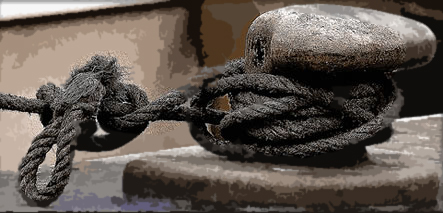
Where Did That Saying Come From?
“The bitter end:” Meaning: To the limit of one's efforts - to the last extremity.
Origin: Bitter has been an adjective meaning acrid or sour tasting since the year 725 AD at least. The word was in common use in the Middle Ages and Shakespeare uses it numerous times in his plays and poems, as do many other dramatists. The phrase 'the bitter end' would seem, fairly obviously, to come directly from that meaning.
But not so fast. Enter, stage left, Captain Smith. Here's what he has to say, in his publication Seaman's Grammar, 1627, which is the earliest citation of the phrase in print:
“A Bitter is but the turne of a Cable about the Bits, and veare it out by little and little. And the Bitters end is that part of the Cable doth stay within boord.”
As you might have deduced, a bitt is a post fastened in the deck of a ship, for fastening cables and ropes. When a rope is played out to the bitter end, it means there is no more rope to be used.
But again, not so fast. Folk etymologists are those who say something is true with no more justification than that they would like it to be true. They are thickest on the ground in the area of military and especially naval attributions. People seem to love a sailor's yarn, and anything with a whiff of the sea is seized on with enthusiasm. So much so that more thoughtful etymologists have dreamed up the inventive acronym CANOE - the Committee to Ascribe a Naval Origin to Everything.
So, is this one from CANOE or not? We like to be definitive and, although the naval origin does seem to have a good case, it isn't conclusive. This time we'll sit on the fence and let you decide.
Phrases.org.UK
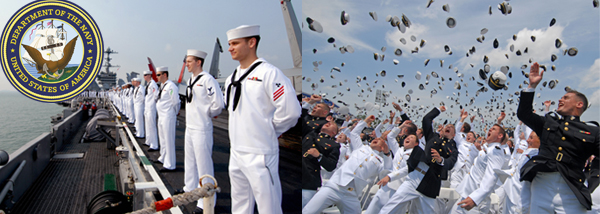

NAVSPEAK aka U.S. Navy Slang
MAA: Master-at-Arms. A rate in the Navy similar in duties to a police officer.
MAD Boom surfing: Struggling to complete or barely passing required evolutions in training on the P-3 Orion Patrol Aircraft. Named for the Magnetic Anomaly Detector that sticks out from the tail of the aircraft. Variations include clinging to the MAD boom or water-skiing from the MAD Boom.
Mae West: (Old) term for a life jacket.
Mad Shitter (AKA Phantom Shitter): A sailor who does not flush a toilet. A prankster who defecates in public areas of a ship.
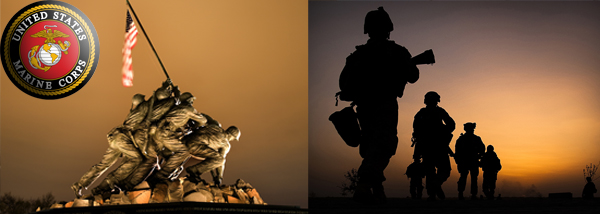

Just for you MARINE
Mess Hall: Cafeteria. See also chow hall.
Messman: cook.
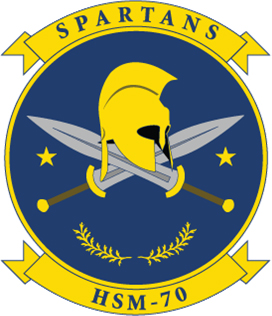
Naval Aviation Squadron Nicknames
HSM-70 - Helicopter Maritime Strike Squadron: “Spartans”
Naval Air Station Jacksonville or NAS Jacksonville, Florida

Science & Technology

Using a deep neural network approach to identify sarcasm
• Physicists prepare to detect gravitational waves from neutron star collisions
• Space scientists observe Io's atmospheric collapse during eclipse
• Hunter-gatherers experimented with farming in Turkey before migrating to Europe
Phys.org

The Strange, Mysterious or Downright Weird

NELSPRUIT, South Africa - A hungry chimpanzee at a South African refuge was recorded showing off his ability to carry a dozen oranges at once.
The Jane Goodall Institute South Africa posted a video to Facebook showing a chimpanzee named Mowgli walking while carrying about a dozen oranges.
The chimp carries most of the oranges in his arms, but also holds them in his mouth and with his toes.
The institute titled the video, “How to carry a dozen oranges”.
UPI (08/08/2016) 


SONG FACTS

“You've Got Another Thing Comin'” - Judas Priest
Album: Screaming for Vengeance
Released 1982 
Although Judas Priest spent most of the '70s as a straight-ahead British metal band that dealt with the genre's expected topics (such as doom and death), the '80s would be a different story.
Such bands as Van Halen had proven that hard rock/metal could be tempered with pop hooks to conquer the charts, and Priest tried their hand at broadening their fan base on several occasions.
They racked up three sizeable U.K. hits in the late '70s/early '80s with the anthemic tracks “Take on the World”  , “Breaking the Law”
, “Breaking the Law”  , and “Living After Midnight”
, and “Living After Midnight”  , but were unable to crack the U.S. market wide open (despite building an enormous cult fan base stateside).
, but were unable to crack the U.S. market wide open (despite building an enormous cult fan base stateside).
While their 1981 release, Point of Entry, seemed to be made up of (for the most part) U.S. radio-ready tracks, the album wasn't the huge worldwide hit they'd hoped for. Wisely, they returned back to their earsplitting heavy metal roots with 1982's Screaming for Vengeance, and reaped the rewards.
The song “You've Got Another Thing Comin'” became a rock radio favorite and an early MTV staple, finally giving Priest the final push they needed in the States -- making them one of the decade's biggest metal bands.
The song contained all the elements of a classic heavy metal anthem - an instantly memorable chorus that was perfect for an arena full of metalheads to shout along to, meaty guitar riffs, and “us vs. them” lyrics. All Music
Judas Priest official site / Billboard / All Music / Song Facts / Wikipedia
Image: “Screaming for Vengeance (album)” by Judas Priest

Trivia
● Fenway Park, Boston (1912), and Wrigley Field, Chicago (1914) are the two oldest stadiums currently hosting major league baseball games.
● 10,000: 1+3+5+7+...+199 = 50*200 is the sum of the first one-hundred odd numbers, starting with 1.
● On a quiz show, you can pick two envelopes. One envelope has $1000 in it, one has $500, one has $300, one has $200, one has $50, and one is empty. How many different amounts can be won? 14 DIFFERENT AMOUNTS 1500, 1300, 1200, 1050, 1000, 800, 700, 550, 500, 500 again, 350, 300, 250, 200, 50.

A Test for People Who Know Everything
Scrabble - Find three 6-letter words that can be formed with the letters “AEMRST”.
● Answer for People Who Do Not Know Everything, or Want to Verify Their Answer Scrabble Word Solver
Answer to Last Week's Test
From the computer world: What does the word “modem” abbreviate?
Answer: Modulation and Demodulation. MIT.edu

Joke of the Day
Never Lose A Tank:
When I lost my rifle, the Army charged me $85. That’s why in the Navy, the captain goes down with the ship.
Pun of the Day
A fisherman who was also a pianist was an expert with scales.


























